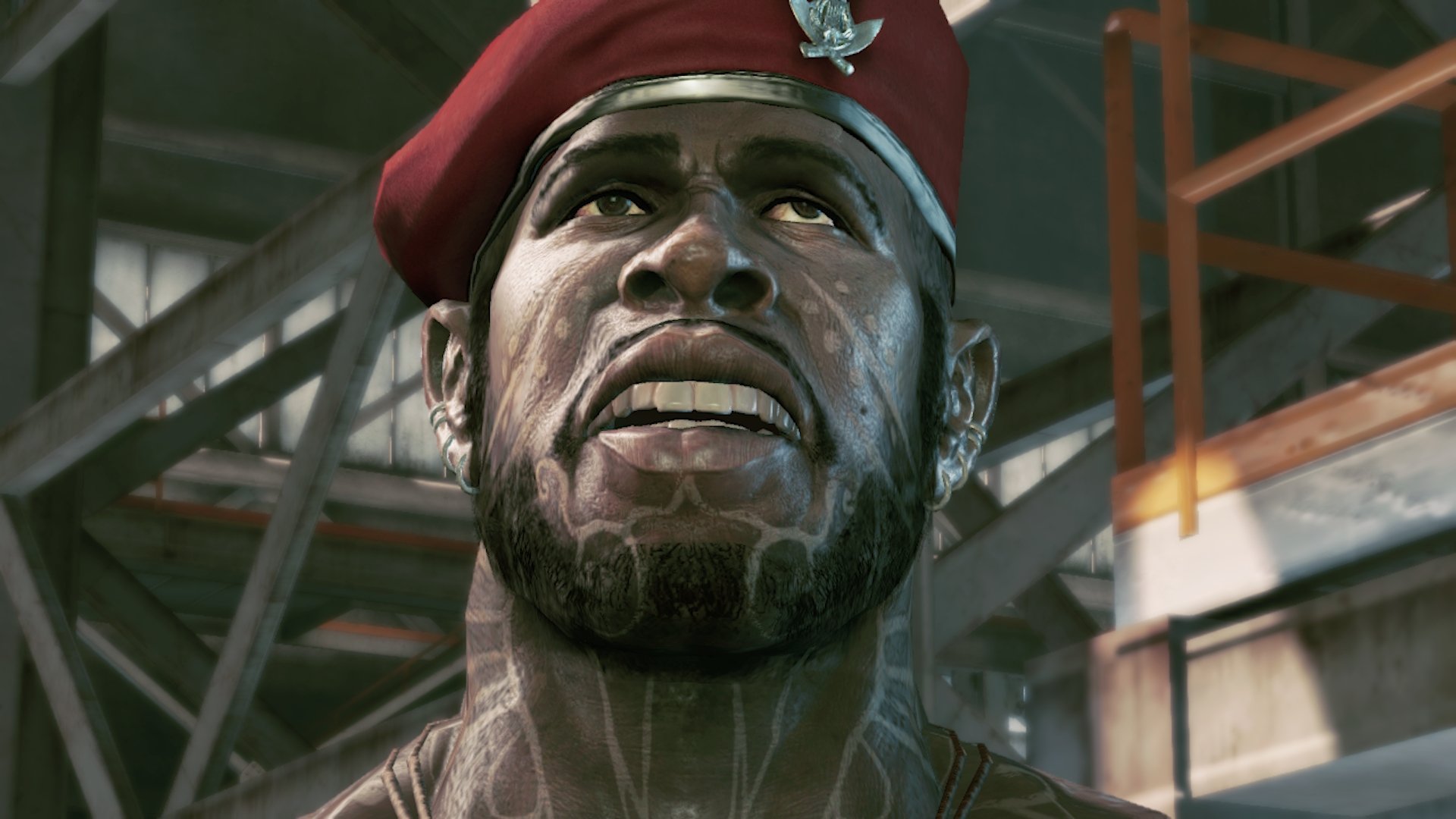The devil you wish you didn’t know.
If it were not for the Wii U’s considerable lack of third-party support, Devil’s Third would effortlessly slip underneath the radars of Wii U owners, never to be heard from again. Sure, it may have been crafted by the once-capable hands of Tomonobu Itagaki, most notable for his acclaimed revival of the Ninja Gaiden series back in 2004, but it feels like the reason why Devil’s Third has been the subject of so much conversation is because it’s one of the only Wii U games that hasn’t been developed by Nintendo that has threatened to achieve a modicum of popularity.
Unfortunately, Devil’s Third will not be remembered as one of the Wii U’s few great non-Nintendo games like Bayonetta 2. It will instead be remembered as that game in which you take control of the living embodiment of a male power fantasy, struggle with a control system that inexplicably forces you to jump between first- and third-person—neither of which handles proficiently—and essentially tasks you with playing through a 13-year-old’s definition of the word “cool” that was actually rather worryingly penned by a 48-year-old man.
In Devil’s Third you control Ivan, a blank slate of a human who is devoid of any discernible personality outside of the one implied by the garish tattoos that adorn his body and who approaches life as though it were one big dick-swinging contest. During the early stages of the game you’re introduced to one of your comrades who promptly attempts to initiate a handshake with our hero, who flat-out refuses because using your manners isn’t manly enough for him. He spends most of his time looking completely ambivalent in regards to the events transpiring around him; even he looks like he’s having a tough time enjoying Devil’s Third.
The plot centers around the Kessler syndrome, a theory proposed by scientist Donald J. Kessler that suggests that objects in low Earth orbit could one day collide with one another, creating a cascading effect that would cause massive space debris, destroying our satellites and prohibiting space travel. If that sounds too intriguing, then don’t worry, because Devil’s Third manages to make it thoroughly mundane by using it as a backdrop for a war and revenge story that sees Ivan hunting after villains with names such as Big Mouse. It’s not a riveting yarn, and unfortunately it’s not even off-the-wall enough to be enjoyable in a campy sort of way. It’s dumb, but not a whole lot of fun.
But no one was really expecting a decent story with a protagonist who looks the way he does, so it was Devil’s Third’s gameplay that had Itagaki fans excited. However, considering how rewarding the combat system was in Ninja Gaiden, it seems that in the 16 years that have passed since the release of the Xbox classic, Itagaki and his team at Valhalla Game Studios have thrown out the rulebook and have instead replaced it with a few notes hastily scrawled onto a stained napkin, with there being little forethought in the reasoning behind the game's unholy alliance between a cover shooter, an FPS, and a hack-‘n’-slasher. That none of these systems have been implemented even competently is more baffling when you consider that this is a game that has been in development now for six years—surely at some point during that period of time, someone tapped Itagaki on the shoulder and said: “Tomonobu, buddy, it’s admirable, you wanting to combine three different genres, but nothing here actually works.”
In theory the idea of combining these three genres may have been an alluring one, but in reality they fail to be accommodated by both the enemy and level design, leading to a shambolic state of affairs in which you’re juggling disparate gameplay experiences but none of them feel like the developers knew how to adequately make them a part of their game. You control Ivan from a third-person perspective and he hugs nearby walls like he’s in a cover shooter, but if you poke his out you’ll immediately snap to a jarring first-person view that is as difficult to control as it is inconsistent; sometimes I’d find that my bullets wouldn’t register with an enemy even if I’d clearly hit them, which is an egregious error for a game that is 95% shooting.
With this being an Itagaki game, the most enjoyable aspect of the action is inevitably its melee combat, though this is implemented so incredibly poorly that anywhere it could potentially be used enjoyably are squandered. This is because rather than spliting up the game into distinct sections where melee and gun combat are preferable options, you’ll instead be presented with hordes of enemies who are far easier to kill with guns than they are with your sword, axe, or whichever melee weapon you’re carrying.
There are times when Devil’s Third clearly wants you to use your sword rather than your gun, like in its abandoned Chinese town stage where you’re pursued by fleets of ninjas, but then as these enemies are also armed with guns firing bullets that cannot be blocked by your melee weapons, these potentially fun segments turn into an infuriating mess. Switching from your sword to a gun is a nightmare given that aiming down your first-person sights is fruitless when in close-quarters, and firing from the hip is woefully inconsistent. This means that when you have a few enemies attacking you with melee weapons and a few attacking you with firearms, rather than figuring out an intelligent way to defeat them, you’ll instead resort to hopelessly slicing and shooting your way out with any semblance of nuance and skill being jettisoned out of the window.
The inherent issues with the game’s combat are only made more frustrating due to its awful framerate. Devil’s Third is one of the most poorly-performing console games I’ve witnessed in quite a long time, with the game grinding to a halt incredibly frequently, making any precision you may hope to have during its shooting sections nigh-on impossible. That the game struggles with its framerate so much is even more baffling when you consider how dreadful the game looks. Its textures are PS2-era quality, and that’s only when they manage to load into the game—I counted numerous occasions when they hadn’t managed to catch up with the game itself, with me taking cover behind a brown blur that was supposed to be a crate or a stone wall that instead took the appearance of an indistinguishable grey fuzz.
Now the Wii U hardly competes with the PS4 or Xbox One in terms of graphical prowess, of course, but we’ve seen what Nintendo can do with the technology with the likes of Mario Kart 8. If it weren’t for the fact that it’s in high-definition, Devil’s Third could easily be mistaken for a drab-looking third-party Wii game. During one stage where I was tasked with venturing into a building that had been half-destroyed by an explosion, the game promptly struggled to cope with having to render fire, turning the brief section into a fight for survival as enemy bats (bats are a recurring theme in Devil’s Third for some reason) flew towards me, and thanks to a crippled framerate, all I could do was helplessly let them kill me.
But while the game’s single-player campaign leaves a lot to be desired, according to Itagaki, the multiplayer is the real star of the show. In fact, Itagaki was so confident that its multiplayer component would find a sizeable audience that the decision was made to eventually bring it to the PC as its own standalone game, a curious decision considering that, while it certainly is the most enjoyable aspect of Devil’s Third, it’s still essentially a moderately tasty condiment tucked inside an otherwise shitty sandwich.
There are a variety of game modes to choose from, but after waiting for 45 minutes on modes outside of team and standard deathmatch and only ever being paired up with one other person, I surrendered in the knowledge that its online is more-or-less already dead. Unfortunately, this is where the most fun can be had in the game, given its genuinely inventive Siege mode in which clans are tasked with building their own sprawling bases and then defending them from rival teams. If Devil’s Third had been halfway decent in any other respect, there may have actually been some people willing to invest the time into this mode that is required for it to live up to its potential, but as it stands its player count dramatically suffers from the otherwise exceptionally bad game that is attached to it.
Itagaki previously claimed that Devil’s Third would be a revolutionary shooter, but I can now safely declare that statement to be laughable at best and highly delusional at worst. Devil’s Third fails to be even an adequate game on almost every count, from its performance, to its gameplay, to its story and characterization. Every male character involved is a topless, intellectually challenged dullard, every female a scantily-clad sex object with little room in between. Devil’s Third isn’t so bad it’s good, as many will claim, but rather it is so bad that it beggars belief that at some point during its six-year development time, someone didn’t take it round the back of the shed and put it out of its misery.
-
Online multiplayer threatens to be fun…
-
but there’s barely anyone playing it
-
Horrendous performance issues
-
Unsuccessfully blends three different genres
-
Woeful level design
-
Embarrassing protagonist
-
Inconsistent shooting
-
Under-utilized melee combat
-
Laughably poor visuals
devils-third
-
devils-third #1
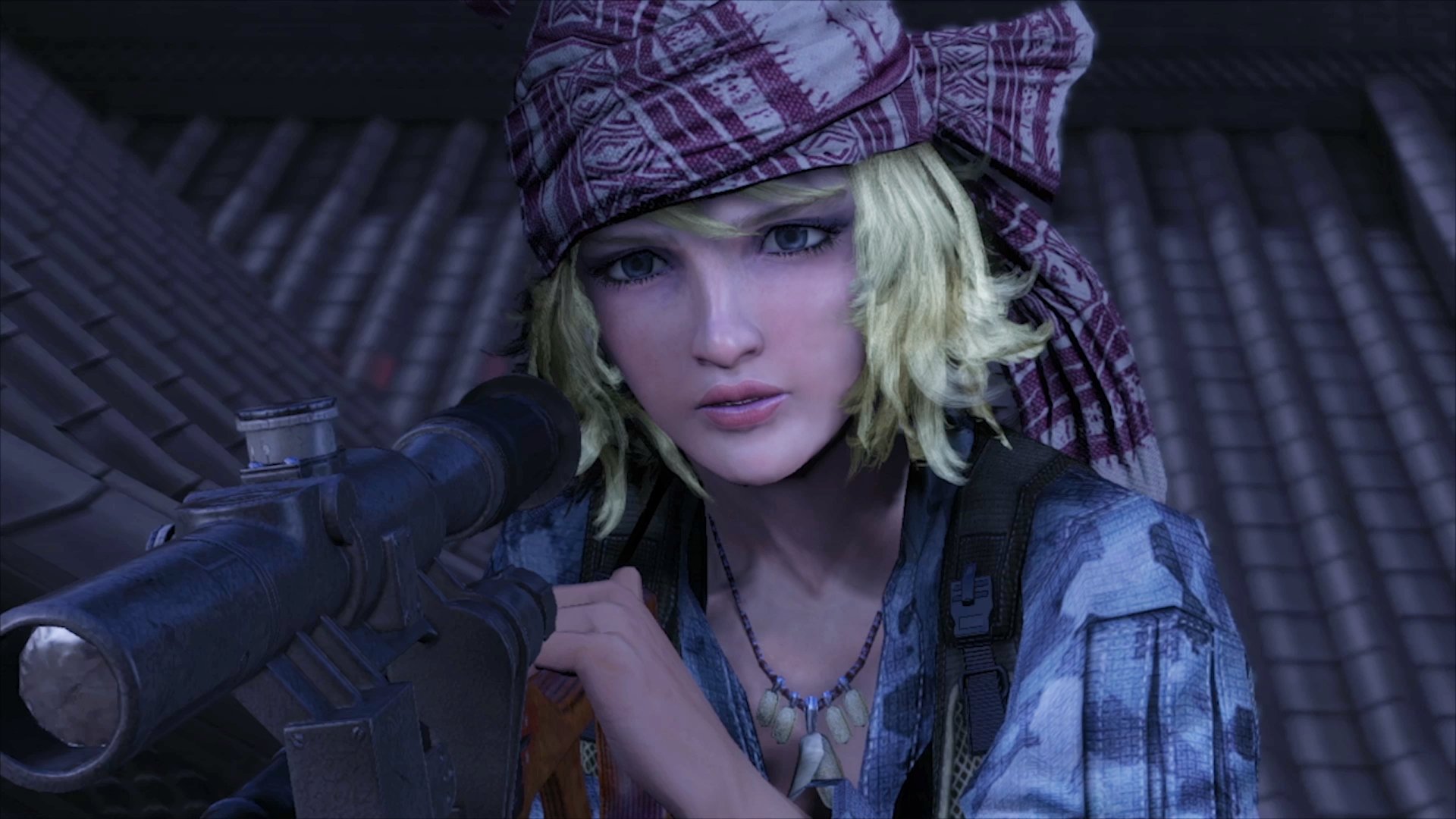
-
devils-third #2
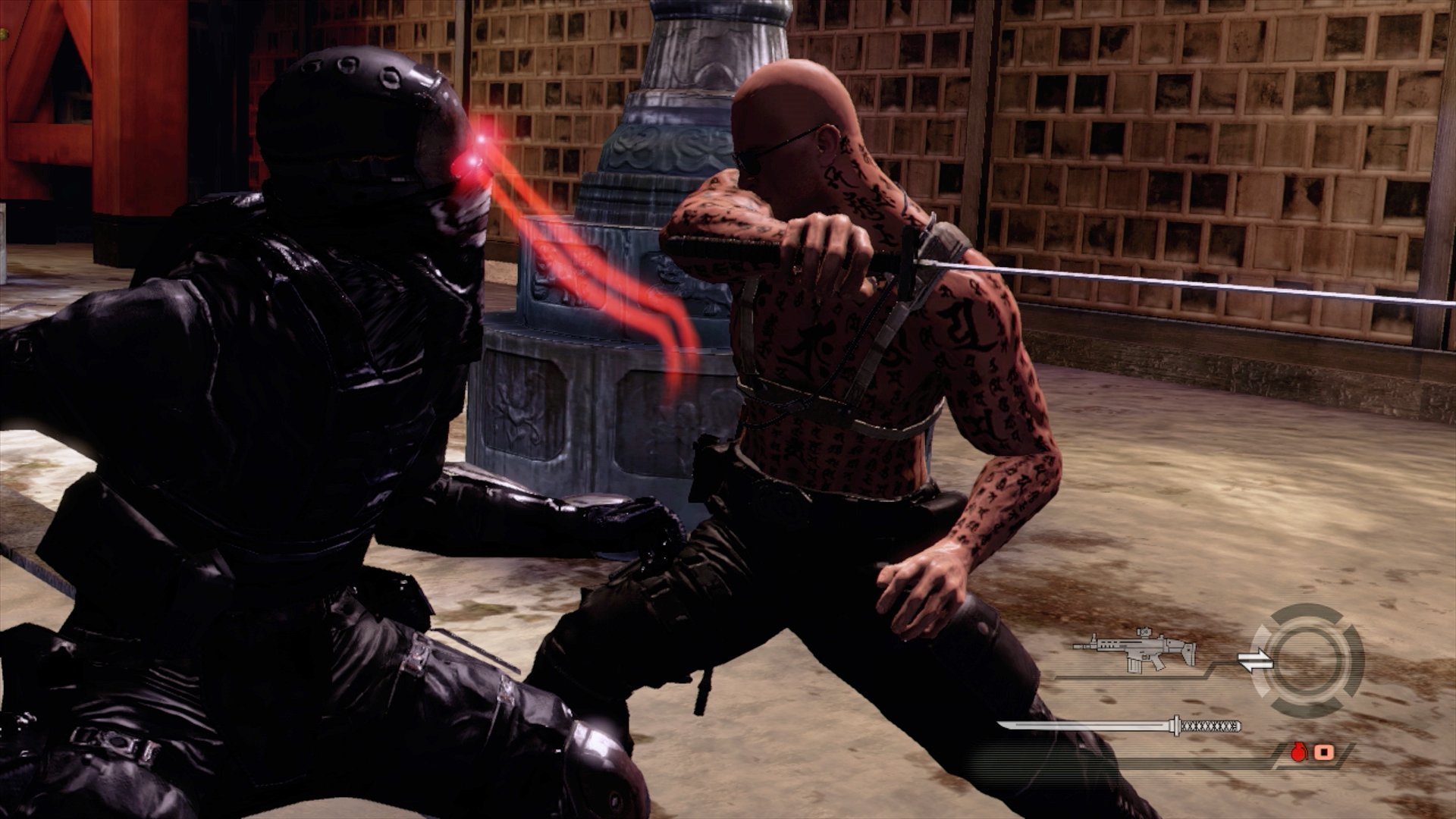
-
devils-third #3
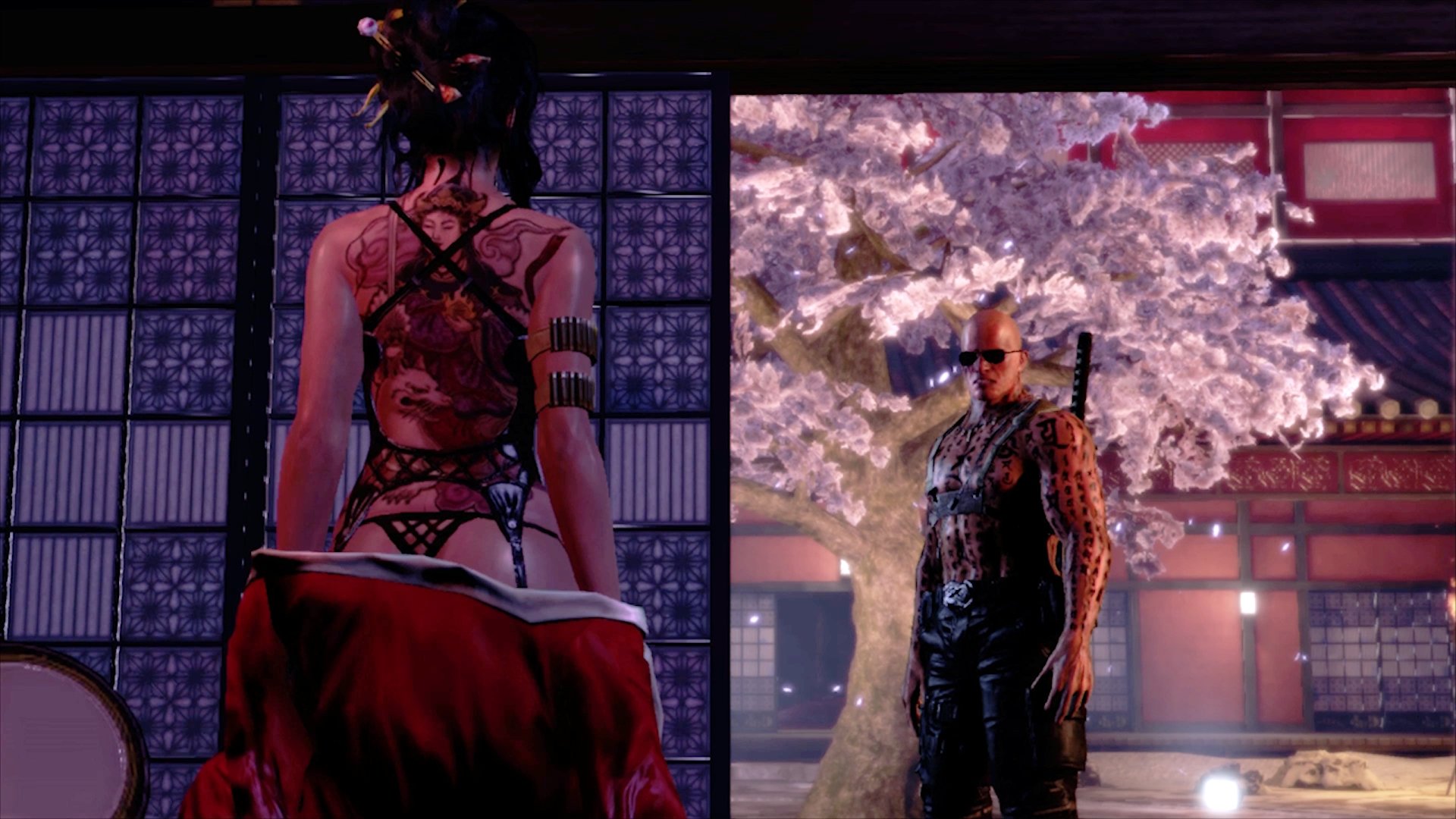
-
devils-third #4
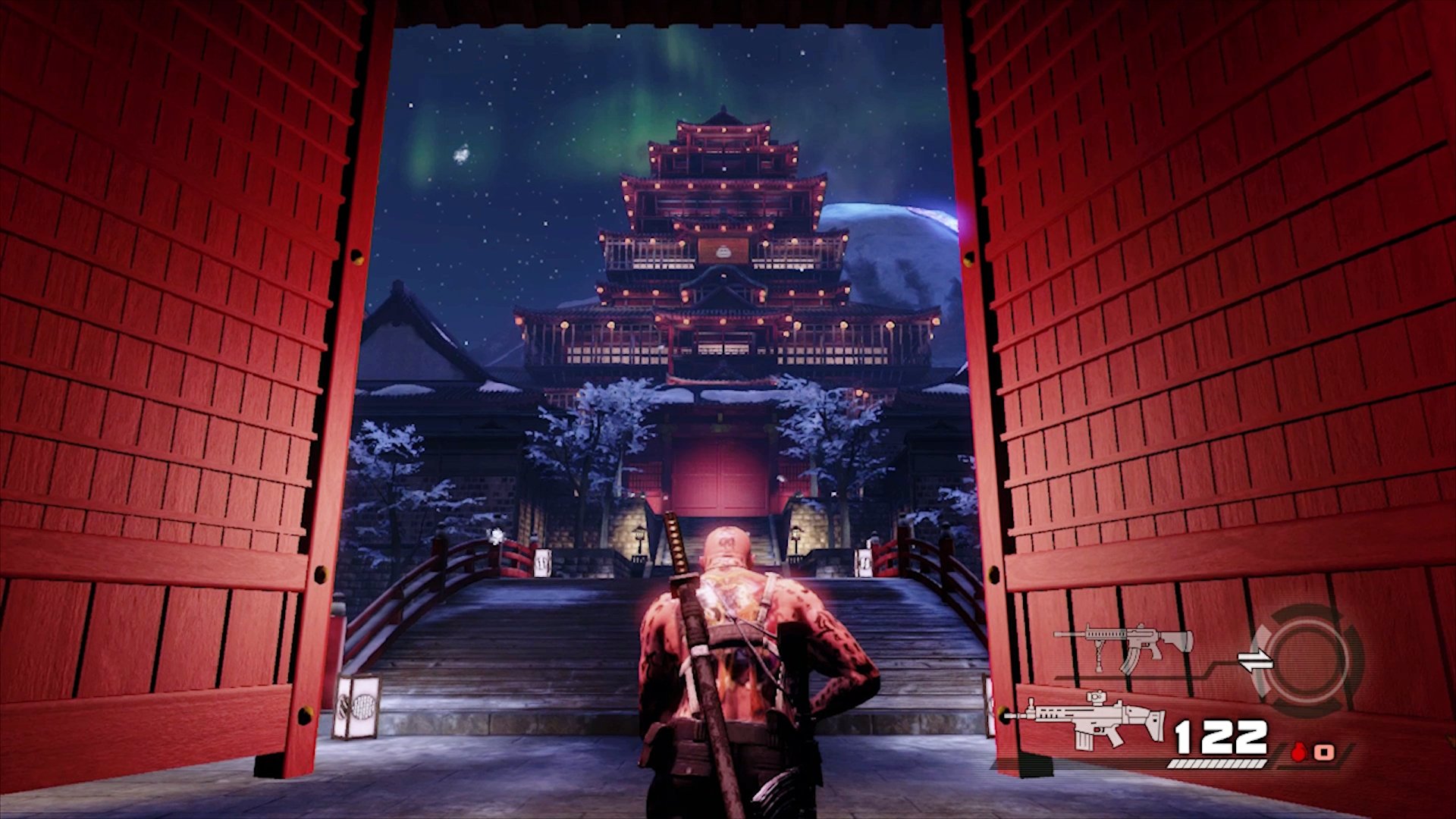
-
devils-third #5
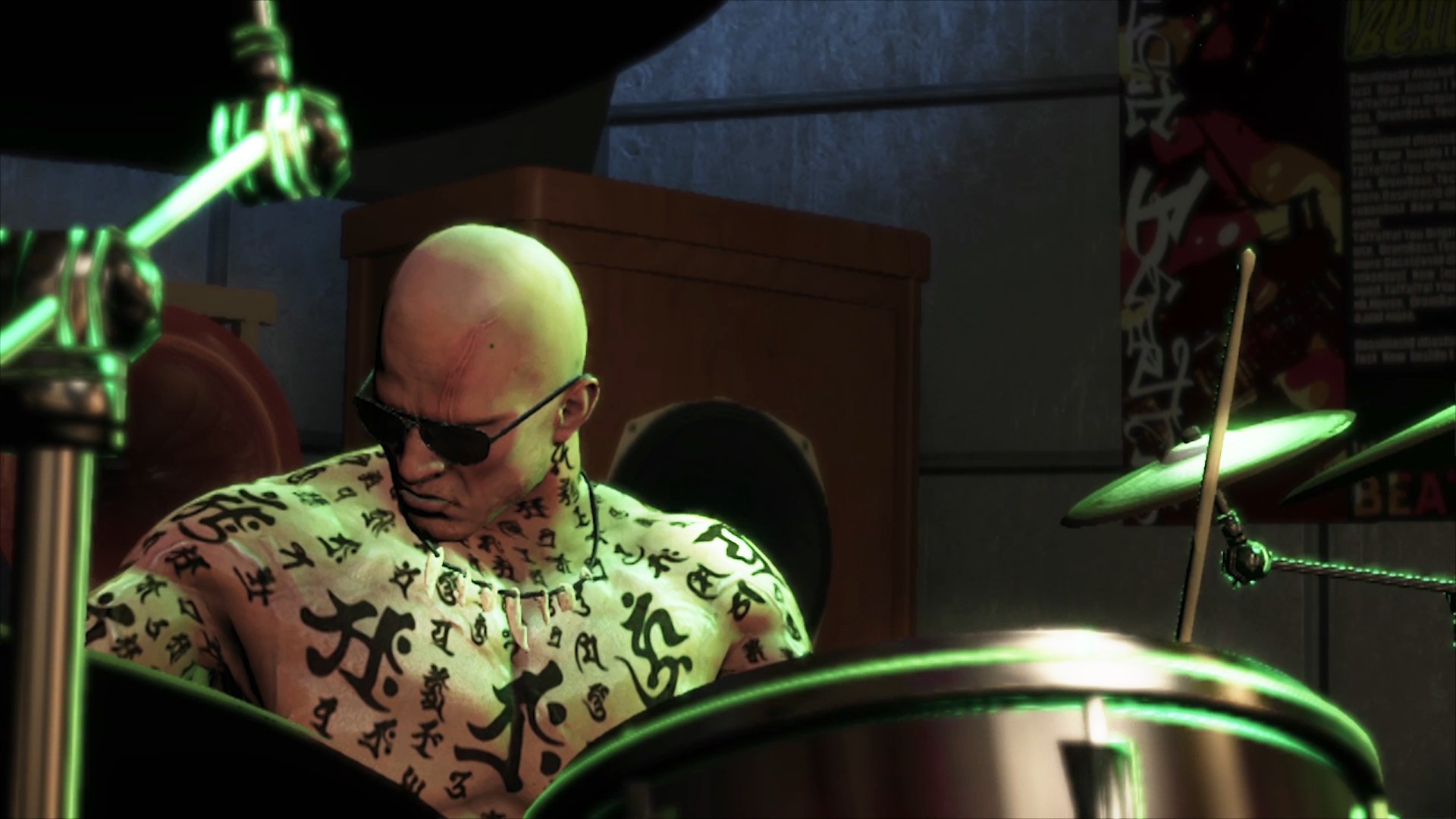
-
devils-third #6
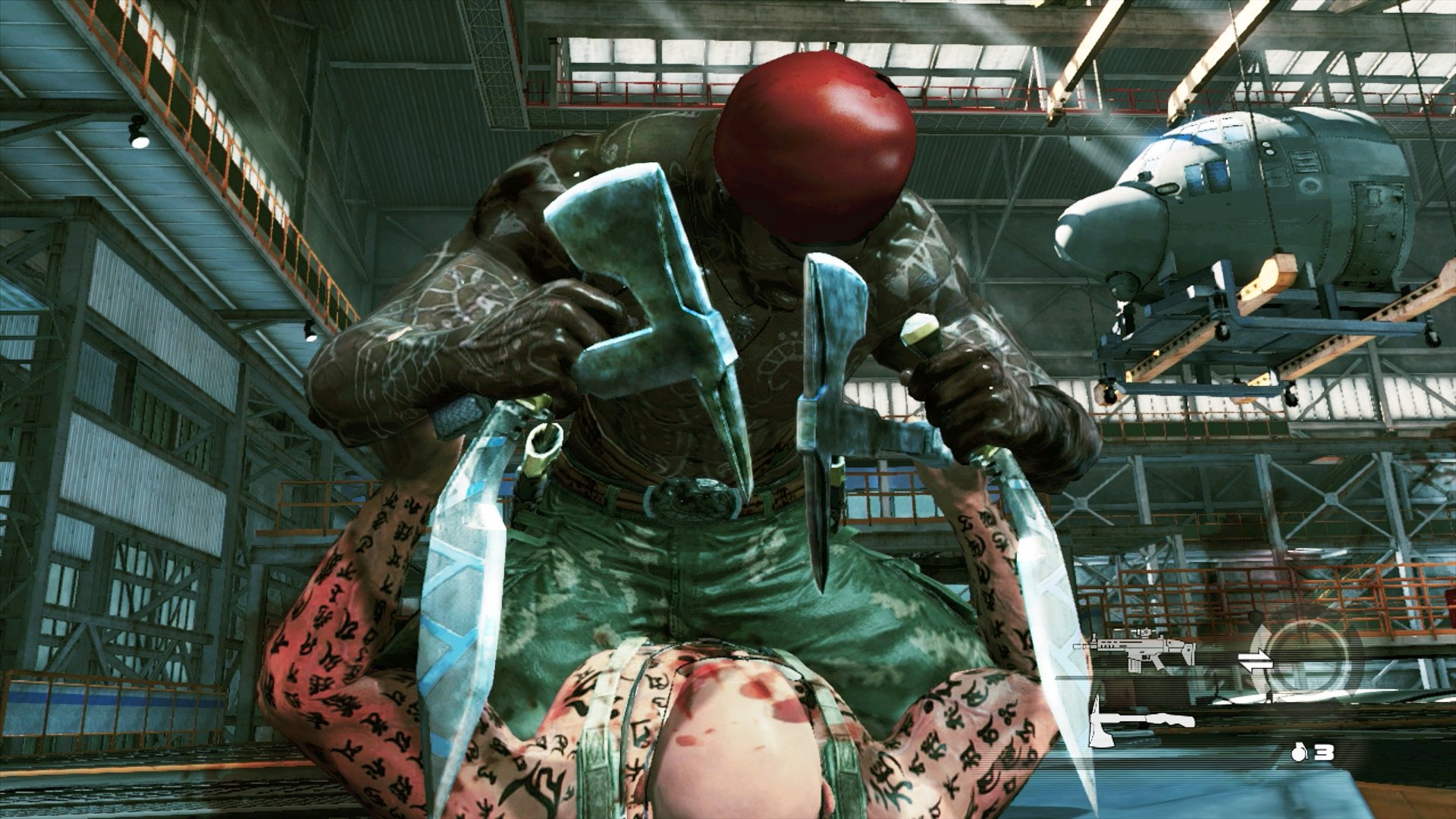
-
devils-third #7
